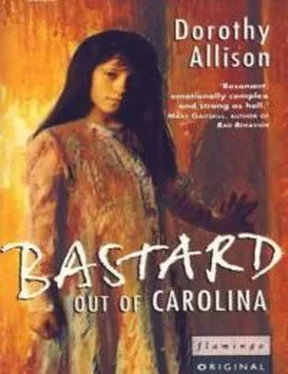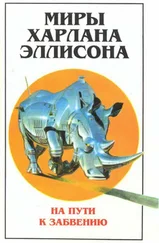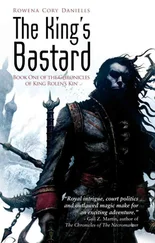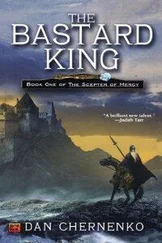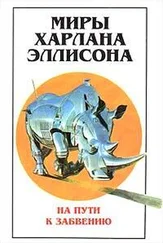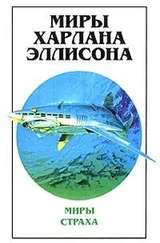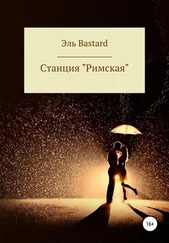I worshiped my uncles—Earle, Beau, and Nevil. They were al big men with wide shoulders, broken teeth, and sunken features. They kept dogs trained for hunting and drove old trucks with metal toolboxes bolted to the reinforced wood sides. They worked in the mil s or at the furnace repair business, or sometimes did roofing or construction work depending on how the industry was going. They tinkered with cars together on the weekends, standing around in the yard sipping whiskey and talking dirty, kicking at the greasy remains of engines they never finished rebuilding.
Their eyes were narrow under sun-bleached eyebrows, and their hands were forever working a blade or a piece of wood, or oiling some little machine part or other.
“You hold a knife like this,” they told me. “You work a screwdriver from your shoulder, swing a hammer from your hip, and spread your fingers when you want to hold something safe.”
Though half the county went in terror of them, my uncles were invariably gentle and affectionate with me and my cousins. Only when they were drunk or fighting with each other did they seem as dangerous as they were supposed to be. The knives they carried were bright, sharp, and fascinating, their toolboxes were massive, ful of every imaginable metal implement. Even their wal ets bulged with .the unknown and the mysterious— outdated ID cards from the air base construction crew, passes for the racetrack, receipts for car repairs and IOUs from card games, as wel as little faded pictures of pretty women who were not their wives. My aunts treated my uncles like overgrown boys—rambunctious teenagers whose antics were more to be joked about than worried over—and they seemed to think of themselves that way too. They looked young, even Nevil, who’d had his teeth knocked out, while the aunts—Ruth, Raylene, Alma, and even Mama—seemed old, worn-down, and slow, born to mother, nurse, and clean up after the men.
Men could do anything, and everything they did, no matter how violent or mistaken, was viewed with humor and understanding. The sheriff would lock them up for shooting out each other’s windows, or racing their pickups down the railroad tracks, or punching out the bartender over at the Rhythm Ranch, and my aunts would shrug and make sure the children were al right at home. What men did was just what men did. Some days I would grind my teeth, wishing I had been born a boy.
I begged my aunts for Earle’s and Beau’s old denim work-shirts so I could wear them just the way they did when they worked on their trucks, with the front tucked in and the tail hanging out. Beau laughed at me affectionately as I mimicked him. Earle and Nevil raked their cal oused fingers through my black hair and played at catching my shirttail as I ran past them, but their hands never hurt me and their pride in me was as bright as the coals on the cigarettes they always held loosely between their fingers. I fol owed them around and stole things from them that they didn’t real y care about
—old tools, pieces of chain, and broken engine parts. I wanted most of al a knife like the ones they al carried—a Buck knife with a brass-and-stained-wood handle or a jackknife decorated with mother-of-pearl. I found a broken jackknife with a shattered handle that I taped back together around the bent steel tang. I carried that knife al the time until my cousin Grey took pity and gave me a better one.
Uncle Earle was my favorite of al my uncles. He was known as Black Earle for three counties around. Mama said he was cal ed Black Earle for that black black hair that fel over his eyes in a great soft curl, but Aunt Raylene said it was for his black black heart. He was a good-looking man, soft-spoken and hardworking. He told Mama that al the girls loved him because he looked like Elvis Presley, only skinny and with muscles. In a way he did, but his face was etched with lines and sunburned a deep red-brown. The truth was he had none of Elvis Presley’s baby-faced innocence; he had a devilish look and a body Aunt Alma swore was made for sex. He was a big man, long and lanky, with wide hands marked with scars. “Earle looks like trouble coming in on greased skids,” my uncle Beau laughed. Al the aunts agreed, their cheeks wrinkling around indulgent smiles while their fingers trailed across Uncle Earle’s big shoulders as sweetly and tenderly as the threadlike feet of hummingbirds.
Uncle Earle always seemed to have money in his pockets, some job he was just leaving and another one he was about to take up. His wife had left him around the time Lyle Parsons died, because of what she cal ed his lying ways. He wouldn’t stay away from women, and that made her mad.
Teresa was Catholic and took her vows seriously, which Earle had expected, but he had never imagined she would leave him for messing around with girls he would never have married and didn’t love. His anger and grief over losing her and his three daughters gave him an underlying bitterness that seemed to make him just that much more attractive.
“That Earle’s got the magic,” Aunt Ruth told me. “Man is just a magnet to women. Breaks their hearts and makes them like it.” She shook her head and smiled at me. “Al these youngsters playing at being something, imagining they can drive women wild with their narrow little hips and sweet baby smiles, they never gonna have the gift Earle has, don’t even know enough to recognize it for what it is. A sad wounded man who genuinely likes women—that’s what Earle is, a hurt little boy with just enough meanness in him to keep a woman interested.”
She pushed my hair back off my face and ran her thumb over my eyebrows, smoothing down the fine black hairs. “Your real daddy …” She paused, looked around, and started again. “He had some of that too, just enough, anyway, to win your mama. He liked women too, and that’s something I can say for him. A man who real y likes women always has a touch of magic.”
There weren’t any pictures of my real daddy, and Mama wouldn’t talk to me about him—no more than she would about the rest of the family. It was Granny who told me what a pissant he was; told me he lived up near Blackburn with a wife and six children who didn’t even know I existed; said he sold insurance to colored people out in the county and had never been in jail a day in his life. “A sorry excuse for a man,” she cal ed him, making me feel kind of wretched until Aunt Alma swore he hadn’t been that bad, just pissed everybody off when he wouldn’t come back and ask Granny’s forgiveness after she ran him off.
“Eight days after you were born,” Aunt Alma told me, “he came around while Granny was over at the mil to settle some trouble with one of the boys.
Anney wasn’t sure she wanted to see him at al , but Raylene and I persuaded her to let him see you while she stayed in the back bedroom. That boy was scared shitless, holding you in hands stained dark green where he’d been painting his daddy’s flatbed truck. You just looked at him with your black Indian eyes like he wasn’t nothing but a servant, lifting you up for some air or something. Then you let loose and pissed a pailful al down his sleeves, the front of his shirt, and right down his pants halfway to his knees! You peed al over the son of a bitch!”
Aunt Alma hugged me up onto her lap. Her grin was so wide it made her nose seem smal . She looked like she’d been waiting to tel me this story since I was born, waiting to praise and thank me for this thing I didn’t even know I had done.
“It’s like you were putting out your mama’s opinion, speaking up for her there on his lap. And that boy seemed to know just what it meant, with your baby piss stinking up his clothes for al to smel . He passed you right over to me like you were gonna go on to drown him if he didn’t hurry. Took off without speaking to your mama and never came back again. When we heard he’d married another little girl was already carrying his baby, Earle joked that the boy was just too fertile for his own good, that he couldn’t plow a woman without making children, and maybe it’s true. With the six he’s got legal, and you, and the others people say he’s got scattered from Spartanburg to Greer, he’s been a kind of one-man population movement.
Читать дальше
